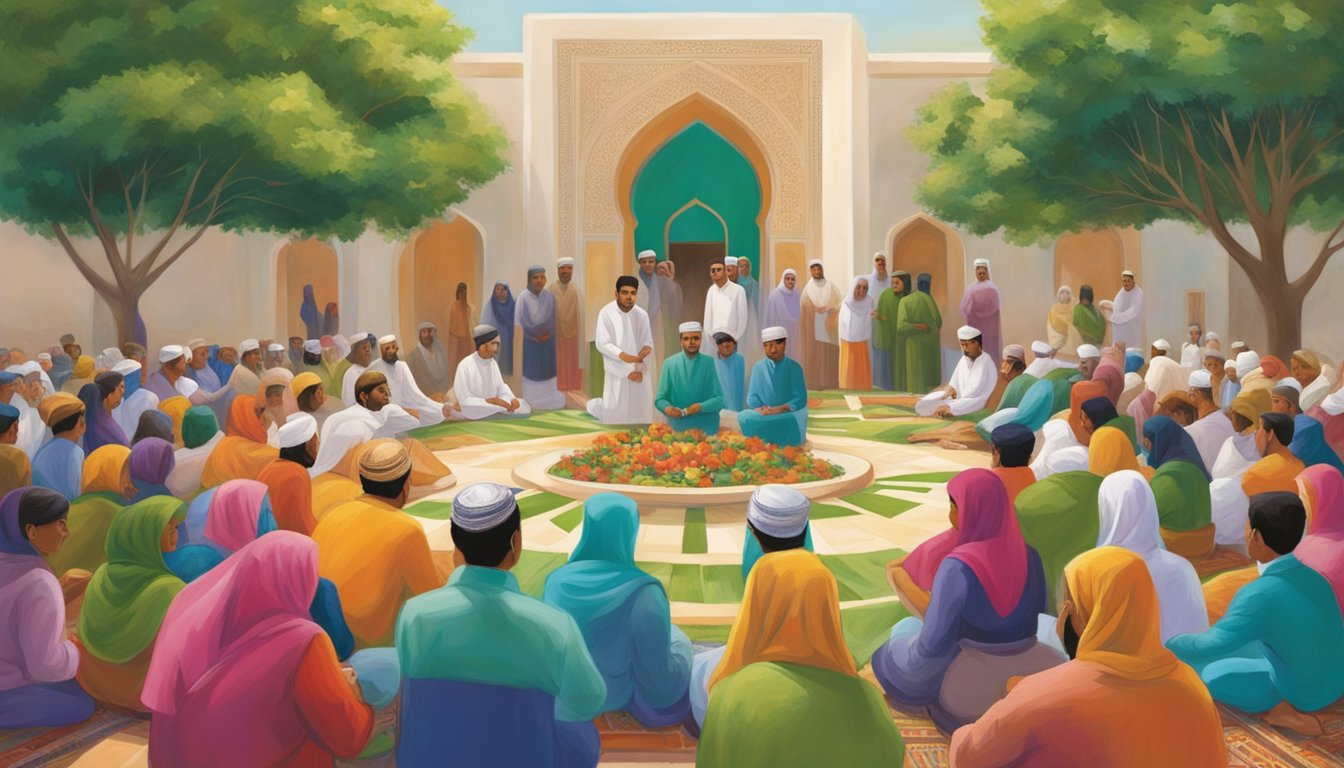Don’t Miss Out On This Unique Astrological Opportunity
Are you tired of spinning your wheels and getting nowhere? Simply put, you’re out of sync: you’re out of alignment with your astral configuration.
But: there’s a kind of map that can help you reclaim your alignment. Think of it as your own personal blueprint to success and happiness: a blueprint that will help you live your most amazing life.
Get started here.
Established in 1967 by Prince Karim Aga Khan, the Aga Khan Foundation plays a crucial role in the lives of millions around the world.
As the 49th hereditary imam of the Ismaili Muslims—a branch of Shiite Islam—Aga Khan devoted his life to championing development and philanthropy until his passing on February 4, 2025.
Understanding the Ismaili Community
The Ismaili community, comprising roughly 15 million people across 35 countries, views their imam as a direct descendant of the Prophet Muhammad.
This group is the second-largest within the Shiite sect and boasts a rich tapestry of traditions and cultural diversity.
In the United States alone, there are about 40,000 Ismailis, with Texas housing the largest concentration.
As a scholar specializing in Muslim philanthropy, I have often found myself inspired by the Ismaili community’s unwavering commitment to civic involvement and charitable giving.
Their dedication to service is evident in their support for education, healthcare, and economic development, benefiting communities beyond their own.
This generosity reflects the diverse global expressions of faith that emphasize compassion and collective well-being.
Through institutions like the Aga Khan Development Network, the Ismaili community demonstrates how philanthropy can be a powerful force for social progress.
Key Principles of Ismaili Muslims
Following the Prophet Muhammad’s death in A.D. 632, the Muslim community faced significant disagreements over legitimate political and spiritual leadership.
The majority supported Abu Bakr, while a faction favored Ali, the Prophet’s cousin and son-in-law.
This division ultimately led to the emergence of Sunni Muslims, aligned with Abu Bakr, and Shiite Muslims, who supported Ali.
Ismailis share a belief with other Shiite sects that Ali should have succeeded Muhammad, along with his sons, who were the grandsons of the Prophet through his daughter, Fatima.
However, Ismailis diverge from other Shiite groups in their line of imams.
While they accept the first six imams, they maintain that Imam Ismail ibn Jafar legitimately held the position of the seventh imam, contrary to the Twelvers who believe it was Imam Musa al-Kazim, Ismail’s younger brother.
A significant split within the Ismaili sect occurred in 1094, resulting in two primary branches: the Nizari, led by the Aga Khan, who recognizes a living imam, and the Musta’lian Tayyibi Ismailis, who believe their 21st imam has entered concealment, represented by a vicegerent called the “da’i mutlaq.”
Like all Muslims, Ismailis acknowledge that God conveyed revelations to Muhammad through the Archangel Gabriel.
However, they interpret these teachings differently, particularly regarding the Quran, which they see as delivering allegorical rather than literal meanings.
For Ismailis, Muhammad embodies the essence of the Quran, and while they promote prayer three times a day, it is not compulsory.
Fasting among Ismailis is also approached metaphorically, emphasizing spiritual growth rather than strict physical abstinence.
They focus on cultivating the soul by avoiding sinful behaviors and engaging in positive actions.
When it comes to zakat, the obligation of charitable giving, Ismailis embrace a distinctive approach.
They direct their contributions to their imam, offering 12.5% of their earnings—a significantly higher percentage than the traditional 2.5%.
The Philanthropic Legacy of the Aga Khan
In 1967, Prince Karim Aga Khan founded the Aga Khan Development Network (AKDN) and the Aga Khan Foundation, focusing on health care, education, housing, and rural economic development in underserved areas.
While previous imams participated in charitable work, Karim Aga Khan was the first to formalize these efforts through an international philanthropic organization.
Today, the Aga Khan Foundation operates in various nations where Ismaili populations exist or have historical ties, including Afghanistan, India, Kenya, and Pakistan.
Additionally, it carries out fundraising and advocacy efforts from its offices in Australia, Canada, the UK, and the US.
As of 2023, the Foundation proudly reported its positive influence on over 20 million individuals, formed through partnerships with more than 23,000 civil society organizations.
Following the Aga Khan’s passing, his eldest son, Rahim Al-Hussaini, has taken on the role of the 50th imam of the Ismailis.
Having been deeply involved with the AKDN, he is expected to carry on his father’s significant legacy of philanthropy and development, ensuring that the vision of the Aga Khan continues to flourish.
Source: Religionnews



